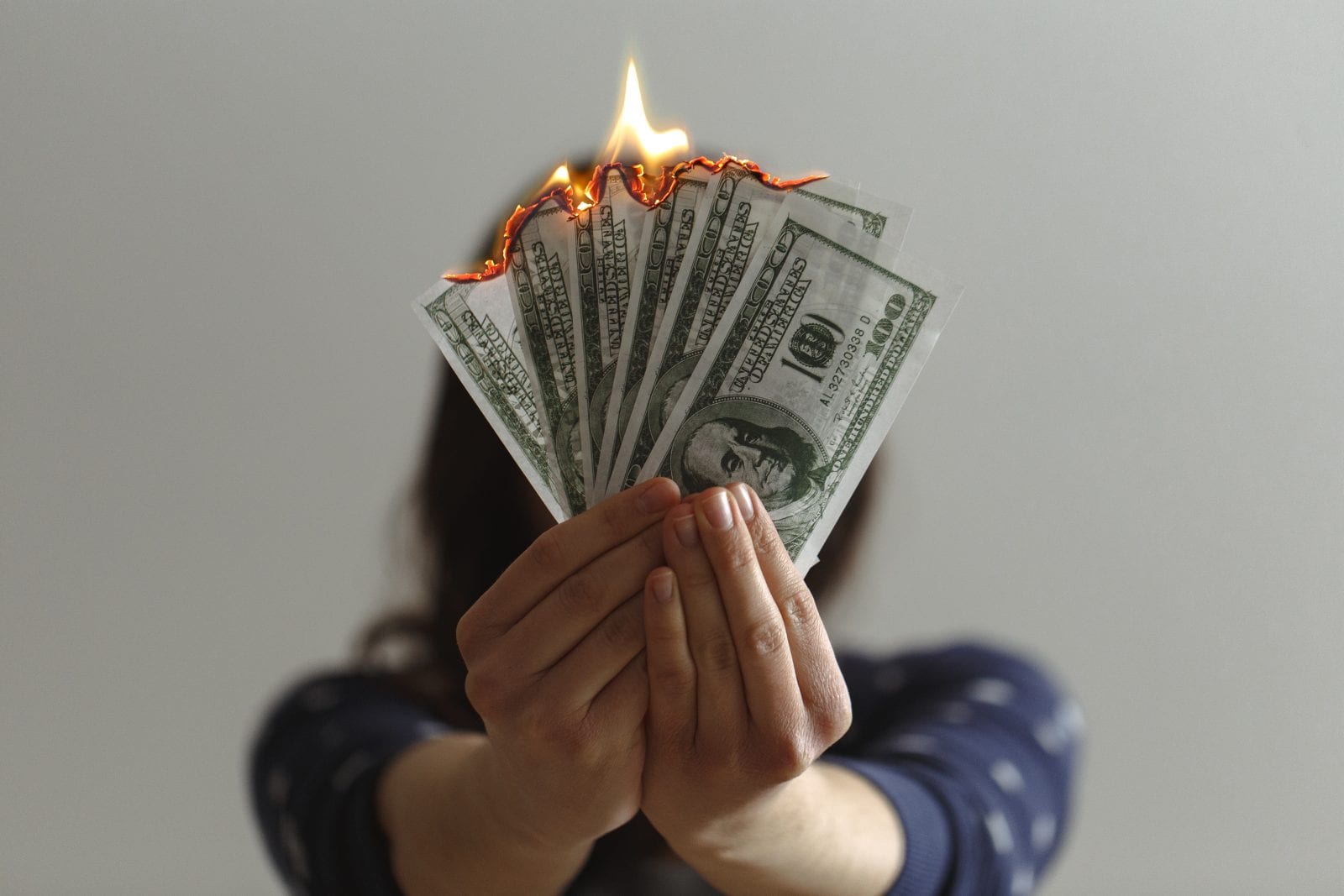Today we live in a world where a person can go from idea to execution faster than ever. This creates an unrealistic expectation that they’ll be successful just as fast.
- It might take a day to start a blog. But it will take far longer to build an audience.
- It takes a trip to Guitar Center to buy a guitar. It takes years of practice to master your craft.
As I’ve mentioned in many of my other articles, entrepneur and invester Sam Altman tells founders that their greatest competitive advantage is a long term view. They should expect to spend at least a decade working on their company.
In a recent conversation with my friend Charlie Gilkey, he referenced the following quote by Stewart Brand:
Five years is what he says any project worth doing will take. From moment of inception to the last good-riddance, a book, a campaign, a new job, a start-up will take 5 years to play through.
It takes one year of outstanding performance in an athlete’s senior year of high school and four years of it in college before they make it to the NBA or NFL. We could say the same for some of the most coveted jobs for knowledge workers.
I’ve seen this pattern in myself, I’ve seen it in my friends and in my role models. Five years seems to be the tipping point at which focused action leads to a significant result. So how do you make the most of that time?
Everyone Starts at Zero

The first year of any creative or entrepreneurial endeavor is the most difficult and frustrating. But every writer starts with zero readers, every app starts with zero users, and every company starts with zero customers. If you’re unwilling to embrace starting at zero, you’ll never reach an audience of millions.
If something is worth doing, parts of it are going to suck. It might suck because you don’t make enough money. It might suck because you currently suck. Permit yourself to suck. Nobody falls out of their mothers’ womb knowing how to play an instrument or write the great American novel.
Everyone Has to Get Past the Dip

There will be a time when you want to quit, where you hit what Seth Godin calls The Dip.
- You hit a dip when you’ve been blogging for 90 days and nobody is reading your writing.
- You hit a dip when your business takes a financial hit and you feel as if every conceivable metric says you should quit.
The dip is what separates people who accomplish what they’re after from the ones who don’t. The inflection point in any endeavor comes right after the dip. But so many people quit right before the inflection point.
In a recent episode of Off Camera, Sam Jones interviewed Uzo, who plays Crazy Eyes on Orange Is the New Black. The night she had decided that her acting career was over and she should apply to law school, she got the call casting her in the show.
Here’s what nobody tells you about the dip. It’s not a one-time thing. You’ll hit it over and over again in your career.
- The Golden State Warriors will be in a slight dip because some of their stars left.
- A published author hits a dip when his book isn’t selling as well as he hoped.
Of course, as you progress in your career, the dips will become shallower and shorter. But in the beginning, the dips will be wide and deep.
Everyone Gives Something Up

Opportunity cost is a term from economics which simply states that whatever choice you make will come at the expense of another.
- The opportunity cost of a prestigious job could be less free time.
- The opportunity cost of a creative career or startup will be the stability of a guaranteed paycheck.
The opposite is true as well. For everything that you say yes to, you say no to something else. It’s difficult to make ideas happen when you’ve overcommitted multiple parts of your life.
My friend and author Charlie Gilkey has what he calls the Five Project Rule.
Concerning “no more than five” decades of research have shown me that most people won’t complete more than five total projects per timescale. Since how many projects we will finish is more important than how many we start, we do ourselves no favors by committing to more projects than we’ll be able to do. In reality, three projects is a better limit for creative and/or professional projects because it leaves bandwidth to use for life/personal projects and accounts for the work we’re doing but not counting.
I have one core project, which is The Unmistakable Creative. But I usually have two or three special projects as well, like planning a conference or writing a book.
But you don’t just give up things related to work. You have to give up things related to your personal life as well. It might mean giving up financial security, starting a family, having kids, etc, etc. But as Emile Hirsch said in the movie The Girl Next Door, “Just make sure the juice is worth the squeeze.”
There are No Shortcuts to Mastery or Elite Performance

If you want to build an audience for your work, achieve elite performance or be commercially successful in any field, you have to spend a lot of time focused on mastery instead of metrics.
But there’s one thing about mastery that people overlook. There’s no such thing as an “I’ve made it” moment. There’s never going to be a time when you finally arrive at a place where you can sit on your ass, posting pictures of yourself by a pool, drinking cocktails with umbrellas in them. This is what author Anne Lamott would call, “the fantasy of the uninitiated.”
To build that kind of momentum that leads escape velocity takes years of time and effort. Doing really big things is the result of your willingness to do a thousand small things for years, sometimes decades. You start with an audience of one to reach an audience of millions. By measuring your progress instead of your outcomes, you stay motivated. You enter the virtuous cycle of progress, momentum, and motivation.
Becoming a Professional

Throughout this period your skills are put to the test.
- Can you finish what you start?
- Can you maintain consistency?
- Are you capable of navigating ambiguity?
- Are you able to hold yourself accountable?
First, you get to develop these skills. Then you get paid for your work as an entrepreneur, artist, or freelancer. You get paid less than you want. And you work on things that don’t matter to you. Author and podcaster James Altucher has said that a reinvention of any kind is a five year process. Year five is when you’re able to earn a living off what you’ve created.
Prioritization

When it comes to making your ideas happen, prioritization is critical. Most people commit to too many things and don’t make progress on any of them. People who succeed commit to a limited number of things and make progress on all of them.
As you begin to accumulate the compound interest from your body of work, you’ll get more and more opportunities. On the surface, those opportunities appear enticing. But most of them are a detour from where you’re headed.
Sure, you could stop in New Mexico on your drive to New York, hang out with a shaman and do some peyote. But, it’s going to prevent you from reaching your destination sooner.
If you email an author who is writing a book, you’ll often receive an autoresponder that reads something like this:
Thanks for writing. At the moment, I’m busy making art. So, unless this involves you paying insane amounts of money or it’s a matter of life and death, you’ll have to forgive my lack of response. When I come out of the cave, I promise I’ll have a gift for you.
That’s someone who understands the power and importance of prioritization. So how exactly do you figure out what to prioritize?
1. Eliminate
Prioritization begins with elimination. When my mentor Greg and I sat down in 2013, he had me make a list of everything I was doing and everything I’d done up until that point:
- I was running the podcast.
- I was writing on a blog.
- I’d helped a few authors with their book launches.
- I managed social media for a pro-surfer and a few brands.
- I was a freelance writer for a few different blogs.
Then, he asked, “Do you want to be doing any of these things 5 years from now?” For everything other than the podcasts and the writing, the answer was no. He said, “Stop doing them now.”
If you want to get to where you are five years from now, stop doing the things today that you don’t want to be doing then.
2. Align
If the goals you choose are out of alignment with your values, you’ll spend a lot of time working on them, and either get nowhere or become successful at something you hate doing.
As we were contemplating our rebrand in 2013, it was becoming clear that our brand wasn’t aligned with my values. I didn’t care about social media marketing or how to increase traffic to a blog. I cared about telling interesting stories. This was clear from my favorite guests to the writing I was doing.
After my brand was aligned with my values, that’s when things started to change. It was the beginning of the evolution of our unmistakable signature.
Discovering your values requires a bit of trial and error. But it begins with creating what you want to see exist in the world.
- I planned the conference I wanted to go to.
- I wrote books about the types of things I wanted to read.
- I interviewed the people whose stories I wanted to hear.
Finding what aligns with your values is about you. You start with an audience of one and you might reach an audience of millions. Or you might reach the smallest viable audience. Either way, your work becomes more fulfilling.
3. Choose
Elimination and alignment lead to clarity. It’s a bit like being a minimalist. You clean out your closet and decide what you want to keep. What you’ll be left with is a handful of projects that matter to you.
This process of prioritization is not static. The distractions won’t stop after you do this. You should always be asking yourself Ryder Carroll’s three questions:
- Is this vital?
- Is this necessary?
- What would happen if I didn’t do this?
4. Passion
You might be wondering what role passion plays in all of this. As Cal Newport once said to me, “We put the cart before the horse when it comes to passion. It’s hard to know if you’re passionate about something if you’ve never done it. Passion follows engagement and meaning follows mastery.” When you’re in this five-year period, your job is to pay attention to what you find engaging.
Below are a few clear indicators of engagement:
- You can spend hours on something and it feels like minutes.
- You’re not getting paid to do something, but still motivated to do it.
- You make the time to pursue a goal.
If none of these things are true, you should ask yourself if you’re willing to spend five years on this thing. If the answer is no, then maybe you have the wrong goal in mind.
Focus

As I said in an Audience of One, being focused is the fuel that ignites the fire of accomplishment. Focused action carries you a thousand miles in one direction. Unfocused action carries you a million miles in none.
The shape of your days determines the shape of your life. The way you spend your time and attention will impact your ability to bridge the gap between who you are and who you want to be.
This is true whether you’re running a venture-funded startup, a billion-dollar company, or working on a personal creative project.
As a startup founder, you can go to conferences, give interviews, and fool yourself into the illusion of progress. Or you can build a great product, recruit users, and do things that lead to a successful company.
If you’re a creative, you can spend your time on social media talking about all the things you’re going to start. Or you can embrace the truth that nobody gives a shit what you’re going to start. All that counts is what you finish.
When I read the earlier quote from Stewart Brand, I looked back at the timeline of my own journey.
- I started tinkering with blogs in the summer of 2008.
- I started my first blog that had an audience in 2009.
- I migrated the weekly interview series from my blog to a podcast in 2010.
- I self-published my Wall-Street Journal best-seller in the fall of 2013.
It took exactly five years before my most significant accomplishment.
There’s a power to patience in a world obsessed with early achievement. I wanted a book deal earlier. I know a lot of authors who accepted shitty contracts and low advances early in their writing careers, only to never write another book.
A lot of people don’t realize that a rapid rise is often followed by a rapid fall. It’s better to create what Ryan Holiday calls a Perennial Seller than it is to become a one-hit-wonder. If you’re serious about having a career in the arts, it’s not about one project, one book or one moment in the spotlight. It’s about a leaving behind a legacy of art that touches hearts, a body of work that resonates, and a trail of magic that will, in the words of Neil Gaiman, “leave the world a bit different for you having been here.”
